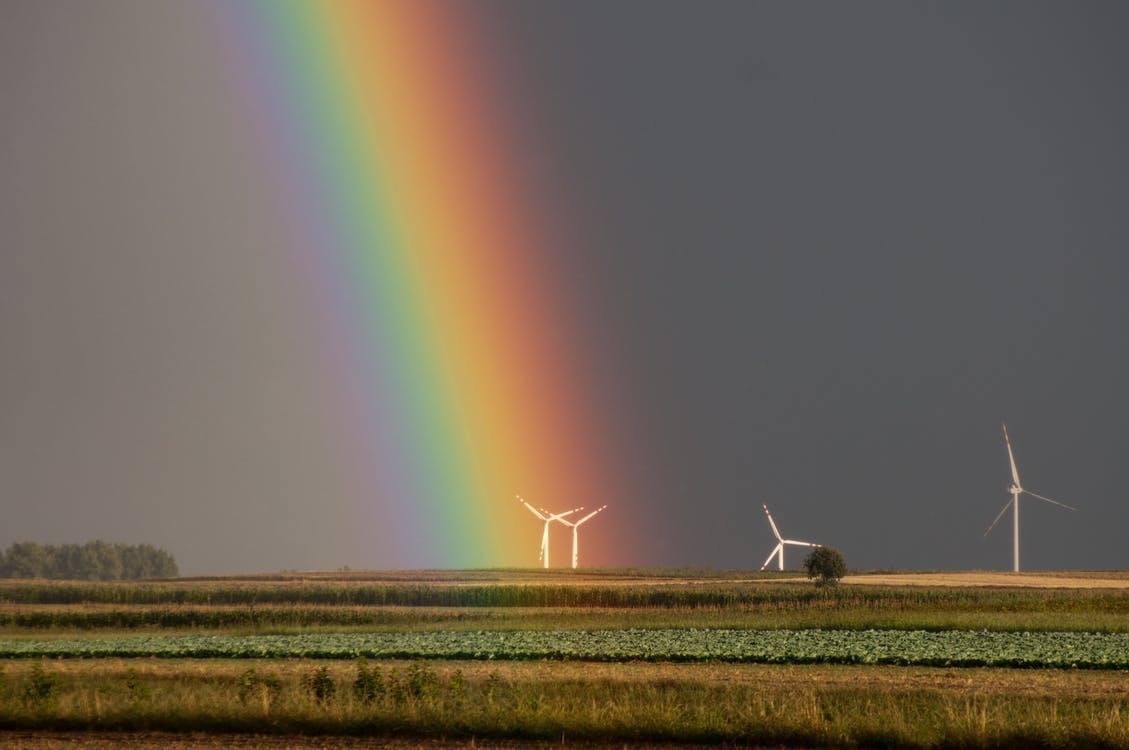THE 'LIVING EXPERIENCE OF THE RAINBOW'

Photo by Polish photographer Paweł Fijałkowski
Free stock photo obtained from https://www.pexels.com/photo/landscape-photography-of-field-with-wind-mill-with-rainbow-1253748/
And then? Would it not be reasonable for the observer to take a step towards observing himself? If the HYPOTHESIS, placed before observation, is a prelude to the return of the reason that determines experience, that hypothesis is now beginning - as it enters into magnitudes that are so enormously beyond the human scale - to come strangely close to the essence of SIGHT, the sense that informs all the faculties and means of expression of the intellect. The observer, without realising it, is now observing his own SIGHT in the most intimate of its operations. The observer is observing himself ! Man looking into man without recognising him. How can such a thing be possible? Simply because the observer sees his sight passively, operating in the void, without the voluntary impulse of reason, without an end, without that will to act which gives the act its direction, the human act, the experience in which and through which man, from the lower plane of his potentiality, arrives towards this end - the pure act, light.
To turn towards oneself, to see oneself as a man, is, once again, to assume the mastery of one‘s own person. It is, in the end, to know oneself. That we should be able to count our bones and muscles, to understand the position and role of each of our own organs - that isn’t enough to know oneself. What is absolutely necessary is to know what is not accessible to the senses - the cause of those moral and spiritual values which are nowadays generally recognised as having been lost. But those values cannot be seen from the outside. They are the fruit of an experience that occurs from within. REASON is the first of these values that has to be recovered. Its power over ourselves has to be restored. Reason, which once again becomes responsible, which knows how to distinguish good and evil, which does not at all depend for its existence on any observation of the external world, which has no need for sensations that are always dubious to learn what it knows. Reason, which is not located in the body, but in the soul, which has its own innate faculties - Memory, Will, Understanding. Memory of what is on high, of the pure act, perfection, form, light; the Understanding, the intelligence, of this light, this form, this perfection, this pure act, which no-one has seen, though everyone is bathed in it from the moment of their first appearance in the world; and the Will that enables it, freely, to act of itself in the direction of what is on high. There are, then, many good reasons why Reason should guide man’s experience for the good, should prevent it from turning against his interest, and should remind him every moment that the end of his existence is either his salvation or his fall. Reason cannot allow the memory to be encumbered with the weight of corporeal accidents, earthly things, for it knows that that would only darken it, preventing the true light from entering in. Nor can it permit the corruption of the will, that the soul should submit to wave after wave of suggestions coming from outside, that man should, in short, give himself up to the indolent attitude of the observer who has renounced both his liberty and his sense of responsibility.
Reason. It is the living experience of the rainbow which testifies to it. But, ever since the thirteenth century, the West has lost the secret of the rainbow. It has thus lost the secret of that true culture which is not an external acquirement, nor encyclopaedic in its scope, nor the fruit of practical applications, but is based on an act by which man assumes the consciousness of himself. Since we have mixed everything up - what is on the level of the senses with what is on the level of memory; the bodily, concrete things with pure abstraction; living movement which is continuous with mechanical agitation made up of a series of more or less perceptible shocks; talent with state of mind; quantity with quality; the absolute with the relative - now, for all his high opinion of himself, man is being forced to incline before the menaces that threaten him and so he demands the return of Man - the return of the moral and spiritual man - in the hopes of thereby saving something of this accumulation of material riches which is coming apart and disappearing in his hands.